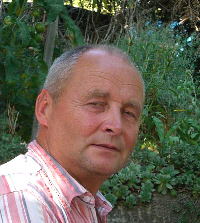Helen O’Clery
Nondik, Zatoz
Zatoz Nondik (1945- ) is a German researcher and founder of the Prehistoric Research Society  (FGUD). He supports the idea of a pole shift 13,000 years ago(a), based on the orientation of various ancient monuments such as Stonehenge, Tikal and Nazca, among others[1084]. He has also written a book about Plato’s ‘orichalcum’, From 2012 to Oreichalkos[841], in which he describes in detail how the orichalcum may be related to Japanese lacquer and suitable for coating walls as described in the Atlantis narrative(b).
(FGUD). He supports the idea of a pole shift 13,000 years ago(a), based on the orientation of various ancient monuments such as Stonehenge, Tikal and Nazca, among others[1084]. He has also written a book about Plato’s ‘orichalcum’, From 2012 to Oreichalkos[841], in which he describes in detail how the orichalcum may be related to Japanese lacquer and suitable for coating walls as described in the Atlantis narrative(b).
Nondik argues that to coat walls something other than a metal or molten amber was involved. However, I can’t help being reminded of the comments of Helen O’Clery who did note[494.52] that the ancients had mixed liquid amber with an oil to produce a form of paint.
*(a) See: https://web.archive.org/web/20130618122106/https://www.polverschiebung.de/index.html
(b) See: https://web.archive.org/web/20131126222154/https://polverschiebung.de/resultate_e.html*
Irish Atlantology
Irish Atlantology, with a couple of notable exceptions, has not been overly productive. The man responsible for kick-starting ‘modern’ interest in Atlantis, Ignatius Donnelly (1831-1901), was the son of an Irish emigrant to the United States and so, although he might have qualified for the Ireland Soccer Team, I must exclude him as a contributor to Irish Atlantology. Another excludee is Henry O’Brien (1807-1835) who, although unquestionably Irish, has been associated with the study of Atlantis by publishers who cynically retitled his The Round Towers of Ireland [124] as The Round Towers of Atlantis [125] although it does not contain a single reference to either Atlantis or Plato!
Edward Hull (1829-1917) was a noted geologist and like Donnelly supported the idea of the Azores as remnants of Atlantis.
Marion McMurrough Mulhall published a number of books including Beginnings or Glimpses of Vanished Civilizations [1343]. In this interesting, if rather dated work of 136 pages, she suggests that “The gods and goddesses of the ancient Greeks, the Phoenicians, the Hindoos, and the Scandinavians were simply the kings, queens, and heroes of Atlantis, and the acts attributed to them in mythology are a confused recollection of real historical events.
Helen O’Cleary in her book, Atlantis [1248], aimed at younger readers, expressed the opinion that the early inhabitants of Ireland may have been refugees, rather than colonisers from Atlantis. She sees the gods of Egypt as having more in common with the Celts than with the pantheons of ancient Greece and Rome.
The most famous Irish Atlantologist was unquestionably the late J. V.Luce (1920-2011). He was a respected classicist and a leading proponent of the Minoan Hypothesis although he considered Plato’s Atlantis story to be a mixture of fact and fiction [120].
P. A. Ó Síocháin (1905-1995), a barrister, sought to link Atlantis with the Irish legend of Hy-Brasil [498].
The filmmaker Bob Quinn, in his book Atlantean [534], links the Irish megalith builders with the culture of North Africa and the maritime heritage which connected both.
Herbie Brennan in The Atlantis Enigma [030] offered a fairly general overview of ancient mysteries but does little to solve the when? where? or who? associated with Atlantis.
Dubliner, Ronan Coghlan produced his Companion to Atlantis and Other Mystery Lands [727] as an A-Z guide to Atlantis, Mu and Lemuria, which unfortunately includes a lot of dubious material which has emanated from ‘psychics’ and psychotics.
A 2010 contribution to Irish Atlantology was my own offering, Atlantipedia [1668], which was intended not only to inform but also encourage and hopefully assist others to take up Atlantean research. I wish all well in such an endeavour, irrespective of nationality. Truth does not recognise borders. It was a 500-page volume compared to the 2,100 pages that would be required to print the contents of this website now (May 2022).
>Ronnie Gallagher, an admirer of Reginald Fessenden, also located Atlantis in the Caucasus region and believes that was inundated as a consequence of the creation of a vast ‘flooded Eurasia’ that resulted from the collapse of glacial ice-dams(b), comparable with the Lake Missoula Floods in America.<
In November 2018, I published an ebook, Joining the Dots [1590], which reflected the results of my own fifteen years of research. The book had the self-explanatory subtitle of Plato’s Atlantis in the Central Mediterranean.
>In 2021, Anthony Woods, CEO of the unaccredited Keystone University(a) published Atlantis Ireland, which is a pathetic attempt to identify Stone Age Ireland as a global hyperdiffusionist centre. He claims that megalith building, language and religion, all spread globally from Ireland, also known as Atlantis!<
(a) https://www.keystone.ie *
